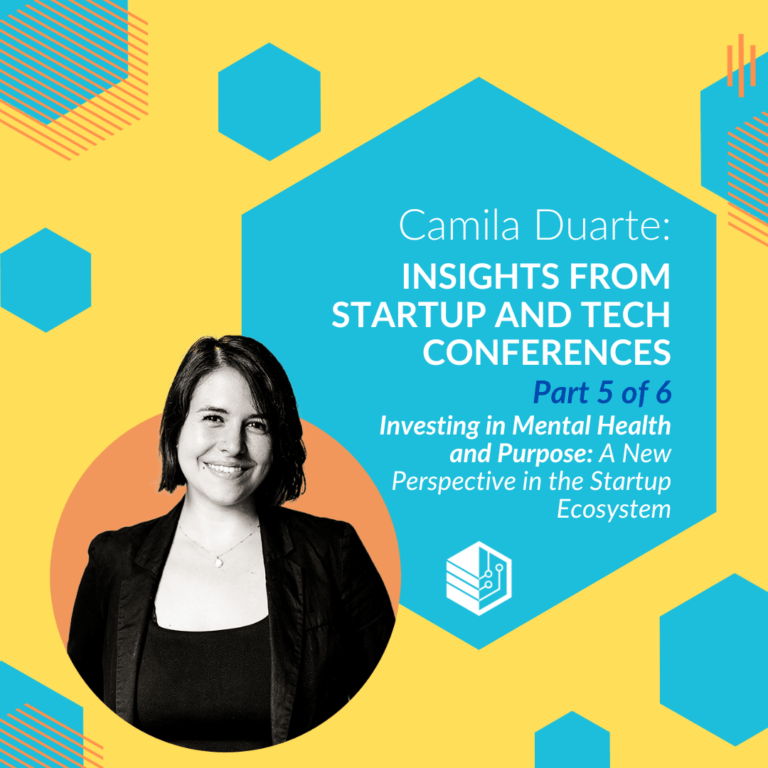
What are the causes and effects of workaholism?
It is no secret that entrepreneurs are passionate about their business and are driven to succeed. This can lead to becoming consumed with your startup, especially in the early stages. But when do your drive and passion begin to border the line of workaholism? What does it truly mean to be a workaholic? There are several causes and effects of workaholism and it is important to understand what being a workaholic is, the signs to watch out for, and how it can be detrimental to your health and business success.
What is workaholism?
Most people view workaholism as working long hours and always wanting to be at work. Although this can certainly be a big indicator, this is not always the case.
Psychologist Wayne E. Oates coined the term workaholic in 1968, defining it as someone who has “an uncontrollable need to work incessantly.”
It is a misconception that working a lot automatically means you are a workaholic, and similarly that working a “normal” amount means you are good at maintaining work-life balance. The reality is someone who loves to work is not necessarily a workaholic, and someone who works less can be.
What is the difference between workaholism and working long hours?
Dr. Oates’ work shows that workaholism is not necessarily determined by the number of hours worked, but rather by the extent to which work controls and negatively impacts one’s life and health.
For example, Person A may work 70 hours a week, but is relaxed and mentally “switched off” when they are on personal time. By contrast, Person B works 40 hours per week, but in their personal time are constantly worried about deadlines and projects, obsessively checking their phone and email, and feel guilty when they are not working.
A study on workaholism analyzing more than 3,500 employees found that the number of work hours was not related to health issues, but workaholism was. Employees who worked long hours but did not obsess about work, reported fewer health complaints.
However, those found to be workaholics, regardless of working long hours or not, reported more health complaints and had increased Risk for Metabolic Syndrome (RMS). The same people reported a higher need for recovery and more sleep problems, emotional exhaustion, and depressive feelings.
What are the causes of workaholism?
There are many causes of workaholism, and they are commonly found in three categories:
1. Psychological
If a person is a perfectionist, overly needs their peers’ approval, tries to escape life’s stresses, or has emotional voids in their life, they may be more apt to develop workaholism.
But at the end of the day, your 200 emails will be there whether you take a break or not, and you will feel better and ready to tackle those emails after a well-deserved break.
2. Childhood
Having to take on adult responsibilities at a young age or growing up with workaholic parents can have a large effect later in life. In addition, if someone is taught as a child that acceptance is earned through performance, this can also shape how a person behaves in their professional life.
Take the time to reflect on how you are feeling at work, and how you are feeling throughout the day.
3. Lack of emotional or social outlets outside of work
When someone has a lack of emotional or social outlets outside of work whether, through extracurriculars, family, or friends, it can lead people to gradually become workaholics, pouring all of their time and energy into something that gives them a sense of belonging or purpose.
What are the signs and symptoms of workaholism?
After learning what workaholism actually is, you may be questioning if perhaps you have workaholic tendencies. There are some common signs and symptoms of workaholism that may indicate you are a workaholic.
- Every job requires perfection, regardless of how exhausted and mentally drained you become trying to achieve it.
- Your days are completely filled with work-related tasks with zero room for anything else.
- Building and maintaining social connections and relationships outside of work is difficult.
- Feel anxious when you consider doing something other than work and feel guilty if you do.
- Ignoring physical needs like food, sleep, and taking breaks because it cuts into your time to get work done.
- The majority of your self-worth, feeling of acceptance, and personal identity are wrapped up in work.
What are the effects of workaholism?
Ignoring signs and symptoms of workaholism can be dangerous as it can take a severe toll on a person’s mental, physical, work, and social/family health.
Here are lists of common effects of workaholism:
- Obsessive thoughts
- Impatience and Irritation
- Stress and Burnout
- Poor concentration
- Emotional disengagement
Physical Health
- Headaches
- Fatigue
- Exacerbation of chronic diseases
- Stomach pain
- Loss of appetite
Work Health
- Lack of productivity
- Difficulty working in teams
- Rarely delegate
- Decrease in creative thinking
- Unpleasant to be around
Social/Family Health
- Lose touch with friends
- Family relationships impacted
- The feeling of isolation and loneliness
- Are no longer invited to social functions
- Work trumps everything else
How do you overcome workaholism?
Some strategies to overcome workaholism include setting firm work boundaries, being intentional about rest, and evaluating if your workload needs to be adjusted.
As an entrepreneur, you are determined to grow your business and succeed, but take notice of your behaviours and habits as you immerse yourself in work. Make sure you are keeping yourself balanced, healthy, stress-free, and happy.
Above all, you should seek the advice of a doctor or mental health professional if you believe you are a workaholic or are beginning to show signs of becoming one. They can give you accurate information and help form a plan to help you overcome workaholism.


